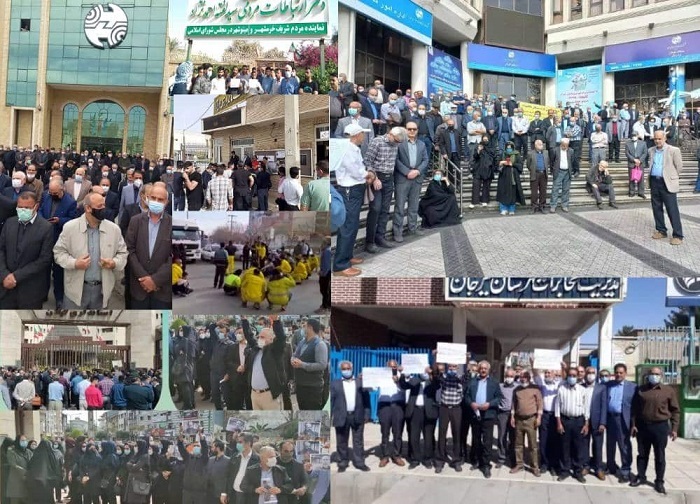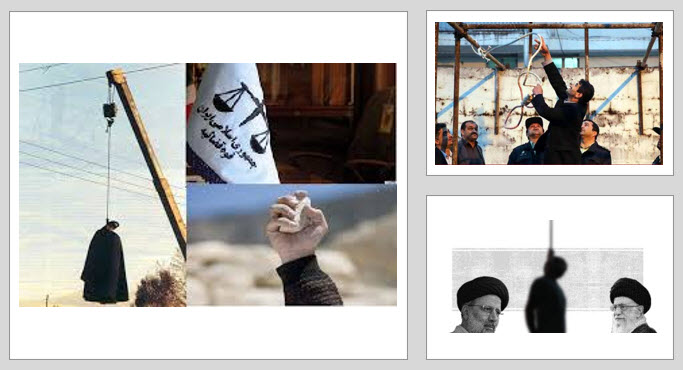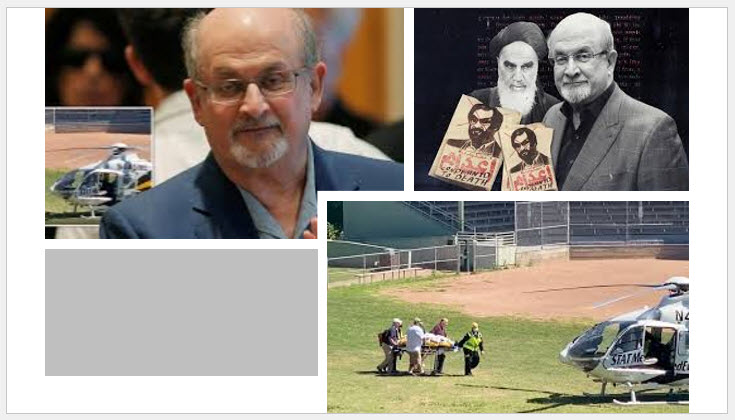
Iran’s regime Supreme Leader Ali Khamenei appointed Ebrahim Raisi as the Iranian regime’s next president in August 2021. At the same time, the Iranian people’s dissatisfaction with his appointment became clear in new outpourings of dissent, which challenged Khamenei’s mission of restoring order in the aftermath of multiple nationwide uprisings.
One year after the inauguration, it is clear that the mission has failed. Food subsidy cuts and avoidable disasters sparked large-scale protests in May and June, which have since continued in defiance of the regime’s efforts to intimidate the public through mass arrests and the continuous operation of prison gallows.
Furthermore, these and other recurring protests frequently feature the same anti-government slogans that defined the uprisings in early 2018 and November 2019. Among them are calling for “death to the dictator” in reference to Khamenei, and “death to Raisi” since his inauguration a year ago.

With the one-year anniversary of the president’s repressive rule approaching, the Iranian regime appears to have recognized the need to broaden its anti-democracy strategy. Thus, Fars News Agency, a publication with close ties to the Islamic Revolutionary Guard Corps, published an article last week that focused on targets far beyond Iran’s borders.
“The Islamic Republic should put military action on the agenda for maintaining international peace and security,” it said before making the absurd claim that such action would be legal if directed against the regime’s arch enemies, exiled dissidents.
In 2018, a high-ranking Iranian diplomat was arrested in Germany after being identified as the mastermind behind a plot to bomb the Free Iran World Summit, which was held near Paris by the National Council of Resistance of Iran (NCRI). The diplomat and his three known co-conspirators were eventually tried in Belgium and sentenced to up to 20 years in prison for conspiracy to commit terrorism and murder.

Though Iranian activists applauded the convictions, they also chastised Western powers for failing to pursue accountability for higher-level regime figures, despite Belgian investigators establishing that the terrorist diplomat, Assadollah Assadi, was acting on orders from top government officials. The Belgian government recently revealed that it had quietly negotiated a treaty with Iran that could set the stage for Assadi’s release in a prisoner swap, only four years into his 20-year sentence.
Even contemplating that release sends a troubling message to Iran’s regime. It implies that Belgium and its allies are unwilling to hold accountable even direct participants in Iranian terrorist plots, let alone the regime itself.

In the face of what human rights groups have described as a “horrifying wave” of executions, and in the aftermath of brutal crackdowns on dissent such as the one that killed 1,500 peaceful protesters in November 2019, it is difficult to imagine the regime’s domestic behavior worsening. However, the current Iranian regime president was a key perpetrator in a massacre of political prisoners that claimed 30,000 lives in the summer of 1988.
It is nearly impossible to overestimate the Iranian regime’s capacity for atrocities, especially if it believes it will face no real consequences for them. As the Raisi administration enters its second year, we can expect its malign activities to intensify, both at home and abroad, unless American and European leaders recognize the gravity of the threats.
Every such threat should be met with a clear enumeration of the serious consequences Tehran will face in response, such as increased sanctions, increased diplomatic isolation, political support for the democratic opposition, and, crucially, proportional response to any violation of Western nations’ sovereignty and national security.
 MEK Iran (follow us on Twitter and Facebook), Maryam Rajavi’s on her site, Twitter & Facebook, NCRI (Twitter & Facebook), and People’s Mojahedin Organization of Iran – MEK IRAN – YouTub
MEK Iran (follow us on Twitter and Facebook), Maryam Rajavi’s on her site, Twitter & Facebook, NCRI (Twitter & Facebook), and People’s Mojahedin Organization of Iran – MEK IRAN – YouTub







